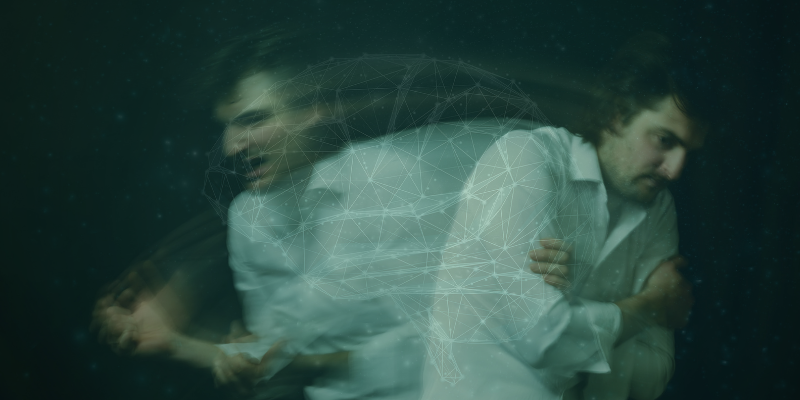
Most people are familiar with the mood swings associated with bipolar disorder (BD), but many are surprised to learn that the condition is also linked to memory loss and other cognitive deficits. Approximately 40-60% of people with the mental health condition experience “neurocognitive impairment,” according to a recent study examining memory loss.
In recent years, researchers have sought to more fully understand how the brain, memory, and cognition are impacted in people with bipolar disorder. Here’s what the most recent studies reveal and what individuals with this mental health disorder can do to protect against memory loss, brain fog, and bipolar blackouts.
Approximately 40-60% of people with BD experience “neurocognitive impairment,” according to a recent study examining memory loss.WHAT IS BIPOLAR DISORDER?
Bipolar disorder is a severe brain disorder that results in pronounced, dramatic changes in an individual’s energy, mood, activity levels, and ability to carry out daily routine tasks.
Formerly called manic-depression or manic-depressive disorder, BD involves shifts between “manic” and “depressive” mood states. These mood swings are cyclical with neutral mood states in between.
These shifts are much greater than the normal ups and downs that most people experience, and can greatly affect a person’s behavior, personality, emotional regulation, and sleep.
Bipolar disorder is one of the leading causes of disability in the world. About 4.4% of the U.S. adult population (roughly 11.3 million people) have BD. While BD most commonly begins in early adulthood, surprisingly, it is also seen in children and teens, as well as middle-aged individuals.
There are a wide range of signs of bipolar disorder with different severity levels, all having a major impact on one’s lifestyle, relationships, livelihood, and general ability to function in the world. Bipolar disorder symptoms are most evident during manic and depressive episodes.
Manic episodes are characterized by elevated energy levels and increased activity (and sometime irritability) lasting hours, days, weeks, or months. Manic symptoms may include:
- Abnormally elevated mood (euphoria)
- Grandiose ideas or plans
- Racing thoughts
- Inflated self-esteem
- Lack of judgment leading to risk-taking behavior
- Decreased need for sleep
- Hypersexuality or hyper-religiosity
- Odd or inappropriate social behavior
- Delusions or hallucinations
Depressive episodes have a marked downshift in energy and mood, which causes a slowdown in activity, lasting hours, days, weeks, or months. Symptoms may include:
- Sad or negative moods
- Loss of interest in activities that once were pleasurable
- Feelings of guilt, helplessness, and hopelessness
- Decreased energy, fatigue
- Sleeping too much or too little or waking too early
- Trouble concentrating
- Suicidal thoughts or behavior
Bipolar disorder symptoms can look different from person to person, and they might even differ from one mood episode to the next. There are 4 distinct types of bipolar disorder:
- Bipolar I disorder – manic episodes lasting at least 7 days or severe manic symptoms requiring hospital care. Often distinct depressive episodes occur as well, lasting at least 2 weeks. It’s also possible to have mood disturbance with mixed features.
- Bipolar II disorder – depressive and hypomanic (less severe manic) episodes, but less intense episodes than with bipolar 1 disorder.
- Cyclothymic disorder – recurrent depressive and hypomanic symptoms, but not intense or long enough to qualify as depressive or manic episodes.
- Bipolar disorder otherwise not specified – bipolar symptoms that do not fall in the other types.
When BD goes untreated, it can truly be devastating to one’s quality of life, negatively impacting school/work life, self-esteem, and relationships. It also increases the risk of substance abuse, suicide, and hospitalizations, as well as shortens life expectancy.
There’s no exact cause of BD, but genetic risk, high stress, substance abuse, trauma, and changes in brain structure and function may be contributing factors.
BIPOLAR DISORDER AND MEMORY LOSS
Not all people with BD experience memory loss, but many do. Oftentimes, during manic or depressive episodes, individuals with BD remain conscious but experience lapses of memory. Some experts attribute the memory loss to the rapid volatility of the extreme mood states. These memory-related effects are called “brain fog” or “bipolar blackouts.”
Researchers have noted that, in general, BD individuals show impaired performance on tests measuring attention, executive function, and memory. These cognitive and memory loss issues are both transitory (occurring during the manic or depressive episodes of the illness) and persistent (even in periods of remission).
Deficits have been observed in both short-term memory loss (forgetting things recently heard, seen, or done) and long-term memory (failing to remember things known in the past) in BD patients.
Unfortunately, this can negatively impact personal relationships and work performance. A March 2022 study noted cognitive issues, including memory loss, as a reason for individuals with BD being less likely to be employed than the general population.
While every BD mood state has been shown to have memory issues and compromised cognition, a study that compared BD individuals with healthy controls found that manic episodes had more pronounced deficits.
BD patients in manic mood states had greater difficulty with verbal and working memory (affecting both short-term and long-term memory), executive function, and problem solving. Also, individuals with more severe BD had greater cognitive impairment.
BRAIN CHANGES IN BIPOLAR DISORDER
Changes in the brains of people with BD have also been noted by experts. In a 2020 review of MRI imaging of people with BD, researchers observed small but significant differences in the volumes of brain structures. They included the following regions:
- Hippocampus, responsible for new learning, memory formation (short- and long-term), and emotion.
- Prefrontal Cortex, responsible for judgment, forethought, planning, working memory, and impulse control.
- Anterior Cingulate Cortex, responsible for shifting attention, error detection, and processing fear memory.
- Thalamus, responsible for relaying motor and sensory signals, regulating sleep and wakefulness, consciousness, and learning and memory.
In addition to these reductions, a 2021 longitudinal study noted cortical thinning in the frontal cortex for those who experienced persistent manic episodes.
A type of mental atrophy, cortical thinning is associated with aging and neurodegenerative disorders such as dementia. Interestingly, a history of bipolar disorder is linked to a significantly higher risk of dementia in older adults, research shows.
It’s still not clear what is driving these BD-related brain changes. Experts hypothesize medication use, genetic factors, and the occurrence of mood episodes likely play a contributing role, according to a 2023 review study.
WAYS TO PROTECT AGAINST BIPOLAR MEMORY LOSS
Getting professional help and proper treatment is essential to minimize the frequency of episodes, which are associated with greater cognitive deficits. That includes embracing healthy lifestyle habits such as stress reduction (exercise and meditation), good sleep hygiene, nutritional supplementation, and a brain-healthy diet.
Additionally, experts recommend the following strategies for supporting well-being and minimizing episodes:
- Having a structured daily routine with actions you repeat
- Eliminating alcohol or any recreational drug use
- Simplifying your schedule, slowly adding activities over time in a sustainable manner
- Seeing a qualified therapist regularly to promote emotional regulation
- Identifying triggers so that you can reach out for support before an episode occurs
- Consistently writing down “to-dos” to ensure you stay organized personally and professionally
- Relying on a calendar every day to keep appointments and give yourself reminders
Bipolar disorder, memory loss, and other mental health issues can’t wait. At Amen Clinics, we’re here for you. We offer in-clinic brain scanning and appointments, as well as mental telehealth, clinical evaluations, and therapy for adults, teens, children, and couples. Find out more by speaking to a specialist today at 888-288-9834 or visit our contact page here.





wonderful advice!
Comment by Doug Morris — February 2, 2024 @ 5:22 PM